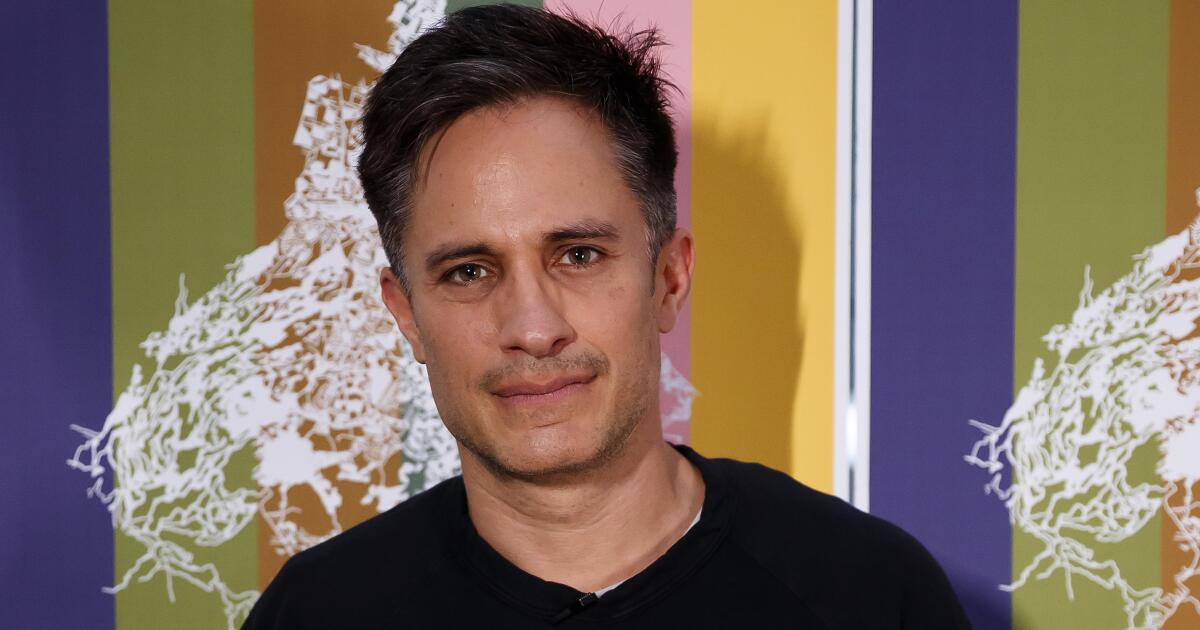The Mexican actor Gael García Bernal is being honored at the 32nd edition of the Biarritz Latin America Festival, a recognition that feels like a “sweetheart” for someone who did not believe it was possible to have a career in cinema because, when he started in the 90s, making films It was a “gesture of rebellion.”
“When I started working in film I didn’t foresee having a career, the truth is, it was something implausible. We are talking about the late 90s, when in Mexico, in Latin America, cinema was made but it was an effort more than anything, it was a kind of gesture of rebellion,” he explained to EFE from Biarritz, in the south of France, where last night He received the festival’s first “Hug of Honor” award.
As it is a contest that seeks to extend bridges through cinema between France and Europe and Latin America (hence its awards are “hugs”), García Bernal finds that receiving this special tribute – an initiative that did not exist until this number 32 of the festival – is a “pamper” and something “very nice.”
“I feel pure gratitude and I am excited. It is beautiful to see that in some way a prize also arises to embrace, to accompany that journey, which in my case was born from the context, but also with some difficulties,” said the 44-year-old actor, originally from Guadalajara (Mexico) and son of filmmaker José Ángel García and actress and supermodel Patricia Bernal.
Become one of the best-known faces of Latin American cinema and with a resume that includes having worked with names like Alfonso Cuarón, Walter Salles, M. Night Shyamalan and Pedro Almodóvar, for García Bernal the job of making films continues to have something mysterious about it.
“There is something fascinating and I would even say strangely curious, not to say ridiculous,” he reasons, because while the films are being shot he does not think that they are going to be important: “if the film does not exist, the world will continue to give laps.”
But then each work becomes “an animal that navigates alone at night,” that “transcends us and survives us.”
“Maybe I’m going too far. But in my case, for example, there are many films that I feel that perhaps we could not understand Mexico or live Mexico without those films,” she points out.
And although without wanting to be “presumptuous” about his career, he considers that some examples could be “Amores Perros” (Alejandro González Iñárritu, 2000), “And your mother also” (Alfonso Cuarón, 2001) or “The crime of Father Amaro” ( Carlos Carrera, 2002).
FOCUS ON CHILE 50 YEARS AFTER THE 1973 COUP D’ÉTAT
The delivery of the Embrace of Honor took place on Monday night at the Gare de Midi in the coastal city of the French Basque Country before the screening of the film “No”, by Pablo Larraín.
That session linked to another of the main axes of this edition of the festival, a focus on Chile that will also feature Larraín as guest of honor, with a tribute to Pablo Neruda and with a videoconference by the writer Isabel Allende, among other activities.
Coinciding with the 50th anniversary of the military coup of September 11, 1973, “State of Siege” will also be screened, the documentary that the Franco-Greek director Costa-Gavras filmed shortly before that operation against the Government of Salvador Allende, and “Disappeared ”, also on Chile and the Palme d’Or at Cannes in 1982.
Regarding the films in competition, in the section of feature films that compete for the Abrazo for Best Film there are titles from Argentina, Brazil or Mexico, among other Latin American countries. There is also a category for documentaries and another for short films.
The programming, which runs until September 29, also includes Latin music concerts and meetings with figures from the continent’s literature and cinema such as Lucía Puenzo or Guillermo Arriaga.
This Tuesday, Gael García Bernal will also have a meeting open to the Biarritz public at the municipal casino.
Nerea Gonzalez
2023-09-26 23:04:03
#Gael #García #Bernal #honored #France #90s #making #films #act #rebellion


